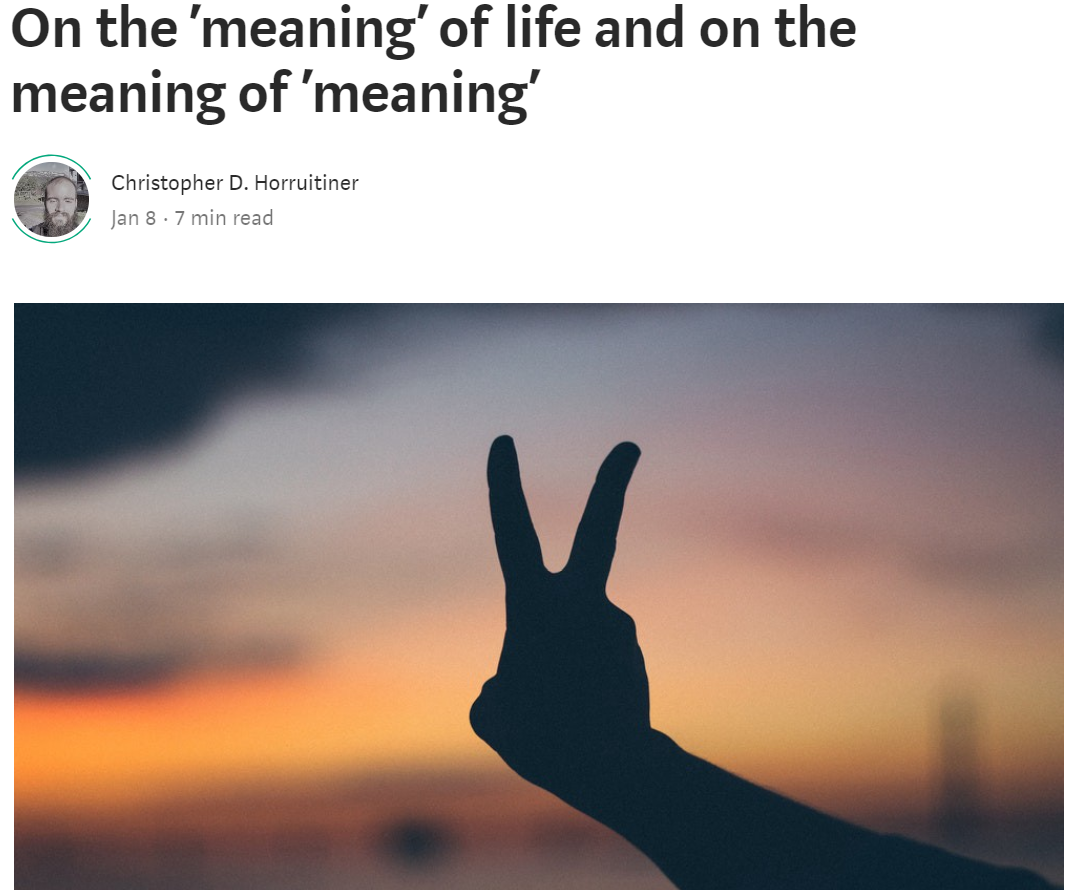The latest on the custody debate over the inheritance of our planet.
 Source: lbrownstone via Pixabay under Creative Commons CC0.
Source: lbrownstone via Pixabay under Creative Commons CC0.
*This article refers to translations found in the King James Version of the Bible.**There are some non-canon inclusions of the contextualization of ?meekness,? which were left in because this is a study in the definition of the term in biblical times, not strictly in the Bible, per se.
I have been reading the Bible this year. So much of the skeleton of our current society owes its existence in part to the Bible, so I feel it my humanly duty to know its many stories and messages. During The Beatitudes of the Gospel of Matthew, with the Sermon on the Mount, the eight blessings, Jesus himself speeks this oft-quoted line:
?Blessed are the meek: For they shall inherit the Earth.? (Matthew 5:5)
All too often, this or some variation of this message is used in the modern day, but with a lack of understanding of context, and it is hence why I wanted to illuminate this narrative. There is a common misunderstanding that the term ?meek? used here is synonymous with weakness. In fact, I?ve once heard the mistranslation ?the weak shall inherit the Earth,? used as an argument against the virtues espoused by the Bible. I?ve heard this misapprehension on the popular AMC series The Walking Dead as well.
For the purposes of this research, I have compiled instances of the Biblical usage of the term ?meek? to try to better understand, from a contextual sense, to whom it refers. Is it the weak? Or is it subtler than that? I will also bring in external sources to understand how the religious community views the issue.
In summation, I have found that the modern understanding of the term meek has a much more negative connotation than the biblicalone, perhaps reflecting changes in culture. Meekness, even if it hasn?t changed too much in definition, is now seen as a negative trait, whereas it was once touted as avirtue.
Here are some of the instances of the word, or related words, found in the Bible?s many passages.
?for none is acceptable before God, save the meek and lowly in heart.? ? Moroni 7:44
Here, meekness is included in the same clause as the ?lowly in heart.? Moreover, these traits are considered here, at least, to be the only traits acceptable before the judgement of God.
?For the natural man is an enemy to God, and has been from the fall of Adam, and will be, forever and ever, unless he yields to the enticings of the Holy Spirit, and putteth off the natural man and becometh a saint through the atonement of Christ the Lord, and becometh as a child, submissive, meek, humble, patient, full of love, willing to submit to all things which the Lord seeth fit to inflict upon him, even as a child doth submit to his father.? ? Mosiah 3:19
Here, the definition of ?meek? attains more clarity as it is placed among a group of similar traits: submissiveness, humility, patience, lovingness, and the willingness to submit. Note, the father-son paradigm established here. Cherubic innocence is the standard for virtue against the contemptible ?natural man.?
Psalms 25:9 ? ?The meek will he guide in judgment: and the meek will he teach his way.?
Here again, the meek have gained favour in the eye of the Lord.
Psalms 37:11 ? ?But the meek shall inherit the earth; and shall delight themselves in the abundance of peace.?
Here lies an insight into why meekness is seen in Biblical times as a positive trait. The meek, left alone to their devices, exist in peaceful coexistence.
?Seek righteousness, seek meekness: it may be ye shall be hid in the day of the Lord?s anger.? ? Zephaniah 2:3
Here, meekness is synonymized with righteousness.
?Walk in the meekness of my Spirit, and you shall have peace in me.? ? Doctrine and Covenants 19:23
Here, meekness is synonymized with peace.
?Cast not away therefore your confidence, which hath great recompense of reward. For ye have need of patience, that, after ye have done the will of God, ye might receive the promise.? ? Hebrews 10:35?36
Here is perhaps the most insightful view of the virtue espoused by the meek. Although the word meek is not proclaimed directly, there is a duality established here which states that you ought to keep your confidence about you, (a trait not entirely compatible with ?meekness?), but at the same time have patience in the promise of the Lord. For as long as you are both patient and confident (and I would argue these suffice for the definition of the biblical usage of ?meekness?), the Lord will fulfill that promise.
It becomes clear from scriptural context that meekness is connotated with a saint-like humility, and not to be understood with its present-day stigma of weakness.
?no power or influence can or ought to be maintained by virtue of the priesthood, only by persuasion, by long-suffering, by gentleness and meekness, and by love unfeigned,?and let virtue garnish thy thoughts unceasingly; then shall thy confidence wax strong in the presence of God.? ? Docrtine & Covenants 121:41, 45
Nora K. Nyland was an associate professor of nutrition, dietetics, and food sciences at Brigham Young University, who gave speeches and wrote on the subject of serving the Lord, is quoted saying of this passage:
The meek will inherit the earth because only the meek will develop all of the other attributes required for entrance into the celestial kingdom. In Doctrine and Covenants 121, we learn that confidence is a result of righteousness.
Again, the idea that the meek have a quiet confidence that is a result of the soundness of their righteousness. They know that if they have done right by the Lord, the Lord will do right be them.
Elder Neal Maxwell, an American scholar, educator, and religious leader, is quoted as saying:
?Meekness is neither alarmist nor shoulder-shrugging unconcern. It involves shoulder-squaring self-discipline, and what follows is the special composure that meekness brings.? ? Elder Neal Maxwell
Harold Bingham Lee, who an American religious leader and educator had this observation:
?A meek man is defined as one who is not easily provoked or irritated and forbearing under injury or annoyance. Meekness is not synonymous with weakness. The meek man is the strong, the mighty, the man of complete self-mastery. He is the one who has the courage of his moral convictions, despite . . . pressure. . . . In controversy his judgment is the court of last resort, and his sobered counsel quells the rashness of the mob. He is humble-minded; he does not bluster. . . . He is a natural leader and is the chosen of army and navy, business and church to lead where other men follow. He is the ?salt? of the earth and shall inherit it.?
Howard William Hunter, who was an American lawyer and was the 14th president of The Church of Jesus Christ of Latter-day Saints, said this on meekness:
?And what of the meek? In a world too preoccupied with winning through intimidation and seeking to be number one, no large crowd of folk is standing in line to buy books that call for mere meekness. But the meek shall inherit the earth, a pretty impressive corporate takeover ? and done without intimidation! Sooner or later, and we pray sooner than later, everyone will acknowledge that Christ?s way is not only the right way, but ultimately the only way to hope and joy. Every knee shall bow and every tongue will confess that gentleness is better than brutality, that kindness is greater than coercion, that the soft voice turneth away wrath. In the end, and sooner than that whenever possible, we must be more like him.?
***Update: I have read up on Bart Ehrman, a theologian and authoritative figure on this subject, and he defines ?meekness? as the opposite of pride.
A Call to (Dis)arm
The need for the biblical paradigm of meekness in man has not diminished in modern times. In fact, the constitutional doctrine of the second amendment is, at the heart of it, reliant upon this paradigmofvirtue.
Built into our moral binding is the inability of the government to infringe upon our right to bear arms, which allows citizens to be in control of their own destiny. This was a logical leap for a constitution drafted after and being the wiser for centuries of monarchical government. And documents such as T. Paine?s Common Sense make it clear that every component of governent ought to have its check and balance. However, it is up to the everyday man to exercise meeknessandtoletthisbeamatteroflastresort.
What is becoming clear, however, is that a few Cains in a sea of Abels is enough to corrupt a system as slow to act as the modern day United States of America. Stricter background checks and psychological wellness checks for gun owners ought to be an obvious non-partisan priority for the nation. It has, however, so fallen in love with its guns, and this business has become so lucrative, that there are more guns than people, and more ways to acquire destructive powers than perhaps manageable.
With militarization at the level of the citizen, it is more important than ever that we question the paradigm of individual meekness and the extent to which we believe that every person has an equal right to bear arms. We must truly consider sacrificing our guns to save our children.
The ones who shall inherit the earth are not weak pacifists at all, but mild, gentle, and humble men who have at their disposal great potential for destruction and the confidence to use this as a last resort. These men, pistols holstered at the hip, but seldom brandished, shall be the ones to inherit the earth. That is, what?s left to inherit.
_______________________FAREWELL EXTANT HOMO_______________________
Enjoyed what you read? Enjoy one of my other articles!



